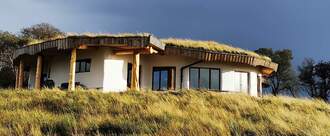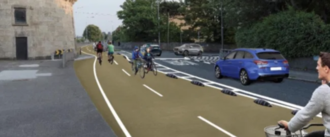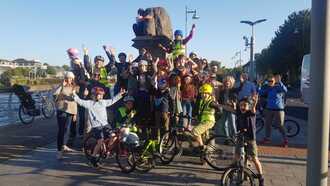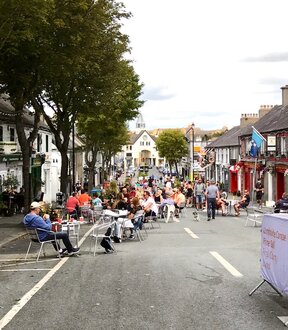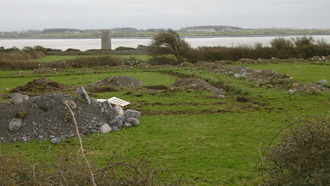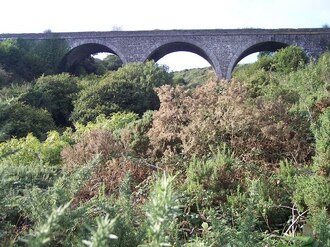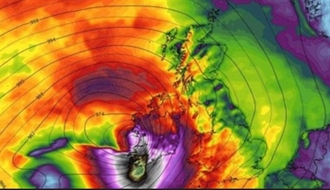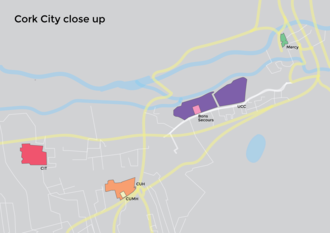- Featured
- Animal Rights
- Anti-racism
- Arts & Culture
- Children
- Climate
- Corporate accountability
- Crime
- Disability rights
- Economic
- Education
- Environment
- Food and Sustainable Production
- Gender Equality
- Governance and Transparency
- Health
- Housing
- LGBT Rights
- Mental health
- Northern Ireland
- Planning
- Privacy and Data Protection
- Rural Inequality
- Social Justice
- Trade
- Transport and Infrastructure
- Workers' Rights
- More
-
SOS Stop the Seal ShootingAt a time when biodiversity is being lost at an alarming rate, instead of this ludicrous scheme and bowing to lobbyists for profit, there should be increased protection for all wildlife and promotion of veganism. Fish stocks have been depleted due to overfishing and not giving time for regeneration, which are the actions of humans, not seals.124 of 200 SignaturesCreated by Marese Hickey
-
Reinstate South East Rail NetworkHelp us protect and improve public transport & infrastructure for future generations.Engage in a multi-year process of improving services to make rail transport a successful transport option in the South East of Ireland.656 of 800 SignaturesCreated by Una Dunphy
-
Allow off-grid, low impact housing in IrelandIn Ireland our individual ecological footprint is approximately 5.2 Global Hectares per Capita (ghc) but the Planet’s actual capacity is only 1.8 ghc: we are living as if there are almost three Planet Earths. This way of life is not only contributing to mass extinction, pandemics and extreme economic inequalities, it means that, in all likelihood, our country will be uninhabitable for our grandchildren. A One Planet Development scheme would give people the option of moving out of the city and into the countryside to pioneer a way of life that goes some way towards bringing the human-nature relationship back into balance. It would allow people to build small low-impact dwellings, to establish community and to work with the land in a regenerative way to bring systemic change to our food systems.4,507 of 5,000 SignaturesCreated by Róisín Dexter
-
Trial Strand road one way and close off rat running for local residents without delayIn these times of Covid19 this will also help people to commute, get to school and exercise safely. Will provide a much nicer environment for the people in Sandymount similar to what has happened in Blackrock and DunLoaghaire. Will mean an end to the traffic jams we're seeing at rush hour. Will provide almost continuous cycle track along the south Dublin coast from Sandymount to Sandycove allowing kids, families and older people to move about safely.979 of 1,000 SignaturesCreated by Sean Barry
-
Keep the cycle lane on Shannon BridgeCovid 19 infection rates are rising again. The crisis is not over and requirements for social distancing are still vital. Any removal of mobility measures designed to facilitate safe movement into the city is dangerously premature. Shannon Bridge is a crucial transport corridor for schools. Over 3,500 children will soon travel to schools directly served by Shannon Bridge. Provision must be made for safe active travel to these schools. This is mandated by the National Transport Authority, Green Schools Ireland, and the Department of Education; The Department of Transport guidelines state 'use public transport only for essential journeys, walk or cycle if possible.' The COVID-19 Response Plan by the Dept. of Education for the safe and sustainable reopening of Primary and Special Schools states 'promote alternative means for children to get to school in a safe way, including walking, cycling and more generally in reducing the impact on public transport'. (July 2020). The Green Schools Plan 'An Ideas Document for Safe Access to Schools' also reiterates the need to prioritize active travel, including walking and cycling, and suggests the implementation of 'a cycle bus or walk-and-stride facilities'. (July 2020). In installing a cycle lane to provide safe travel for cyclists and a safer passage for pedestrians along the pathway- now insulated from motor vehicles- the Council has acknowledged the need for such infrastructure. Removal of such infrastructure is a retrograde step for the Council, when other local authorities across the country are introducing cycle infrastructure to support people who cycle and those that want to cycle but feel its unsafe to do so due to fear of accident, driver hostility and current route layout. Up to 40 children and parents from the Cycle Bus (which serves 2 primary schools in the city centre) use the inbound lane to cross the Shannon each morning on route to school and work. Before the lane was opened exclusively to cyclists and pedestrians, these children shared a lane of traffic with cars, vans, buses and HGV’s on a daily basis. It was, all would agree, the most unsafe aspect of the Cycle Bus’ journey each morning. If Limerick wants to support the increasing numbers of people cycling, then the Council must support 'people first' measures like maintaining a safe segregated cycle lane on one of our bridges.1,206 of 2,000 SignaturesCreated by Limerick Cycle Bus Limerick Cycling Campaign Limerick Pedestrian Network

-
Private Small Bus Operators Of IrelandOur industry moves Ireland , school children,Airports, train stations ,Ports ,Government Departments infant when groups of people need to be moved around we are the industry that does it . We are the ones that move Ireland with out us no one gets to their destinations in one vehicle . Our full size bus takes 6 cars of the road for every full size Coach .We transport school children on a daly basis .Our precious daily cargo is people dont wait till its to late when the operators are no longer in business . School transport have been totally ignored in relation to getting back on the road and having extra cleaning time cleaning equipment and not funding. Refund on vehicles that have been parked up since March on road tax,cvrt or extenstions Allowing this industry claim vat on all business like our counter parts in Northern Ireland.861 of 1,000 SignaturesCreated by Silverlining Coach Hire

-
Make pedestrianisation of New Street, Malahide, permanentPlease support the permanent pedestrianisation of New Street, Malahide. At the moment a 10 week trial is in progress to guage the pros and cons of this measure. Some businesses have mounted an energetic campaign to return New Street to it's former position as a car dominated hostile space for human beings. Don't let them win! If this is reversed, it will be a major setback to efforts to provide livable and walkable communities for all of us.348 of 400 SignaturesCreated by Austin Keegan
-
Public Benefit Manifesto for Roscam Peninsula and A Legacy Project Proposal for Galway 2020This Global Public Benefit Manifesto for the Roscam Peninsula, if well executed, will lead to the preservation & restoration of the National Monument and preserve the surrounding pastoral landscape of this Bronze age settlement and create an iconic “Sustainable by Design” Culture, Heritage, Arts and Theatre experience embedded within a dramatic natural seaside parkland setting. This can be a cornerstone Galway 2020 Legacy Project to mark Galway's year as European City of Culture67 of 100 SignaturesCreated by James McCarthy
-
Restore the Cork, Bandon and South Coast Railway as a greenwayThe Covid crisis has shown that recreational space in rural Cork is scarce and this is especially true for the Cork-Bandon-Skibbereen area. But with quiet roads, more people were out cycling and walking than ever before, showing how eager we are to take up active travel. Let us build the infrastructure to support it. In Ireland, we are already seeing the effects of the next crisis we have to face: The climate crisis needs bold and quick action. This is a unique opportunity to support a shift in transport modes for Cork commuters while also creating recreation space close to the home of thousands of people. With electric bikes becoming more easily available, cycling is quickly gaining attraction as an affordable, accessible and healthy alternative to the commute by car. By providing an infrastructure separate from the N71 we would not only provide a safe route for cyclists. Motorists would profit from this change, too: By reducing the number of cars on the road we would improve traffic flow and move cyclists - often seen as obstacles by motorists - off the road. The more extensive the greenway, the more likely it will also have a positive impact on tourism, with knock-on effects for local businesses. We know how many people use the Waterford greenway and the positive effects it has on the region. By contributing to Irelands cycle network we could even attract international active tourism. As a historic railway, the touristic value of the greenway would be priceless. With many of the structures still intact the former railway would itself be an attraction. We do understand that there have been prior attempts at this undertaking that have been dismissed or delayed due to the costs involved. However we would like Cork County Council to address this with the same urgency, the dedication and the budget they would use for a motor-traffic-centered infrastructure project. This is one of the bold actions required to prepare Cork County for the future. There has also never been more funding made available for active travel than ever before. The investment would benefit a very broad set of people, including motorists. We would like Cork County Council do address this project as a matter of priority.125 of 200 SignaturesCreated by Janis Altherr
-
Report the Climate and Biodiversity Crisis• Increased frequency of extreme weather events putting lives at risk. • Increased flooding and rising sea levels endangering vulnerable communities. • Impact to food production globally and local impact to farming in Ireland. • Increased frequency of water supply shortages impacting households in Ireland. • WHO reports that the climate crisis poses one of the greatest risks of the 21st century. • As an example, "The Guardian" now consider this issue so important they now publish CO2 levels along with the weather forecast. • Link: https://www.theguardian.com/environment/2019/apr/05/why-the-guardian-is-putting-global-co2-levels-in-the-weather-forecast • The Biodiversity crisis could lead to the extinction of many species, something from which Ireland may never recover.499 of 500 SignaturesCreated by Suzanne Murphy
-
Cork Hospital CyclewayImagine cycling safely from Cork University Hospital/Cork University Maternity Hospital to Grand Parade and on to the South Infirmary Victoria University Hospital, all the while separated from cars and HGV trucks by protective barriers. On the way you pass the Bon Secours Hospital, UCC and the Mercy University Hospital. Health care workers have always cycled to work, and between the various city hospital campuses. But during the COVID19 pandemic, they were given a glimpse of what it might be like to cycle safely on the then quieter streets. The traffic is back. Now as lockdown eases we urge Cork City Council to boldly implement measures that will protect us, and all citizens of Cork, who make these journeys. Clapping for healthcare workers is easy. Making the city better for all citizens requires vision and leadership. The people of Cork were recently asked through social media: Would you like to see your front-line healthcare workers protected on their way to and from work? The response was unanimous: YES! #CorkHospitalCycleway. A protected cycleway. If this is something you'd be interested in? We'd love to hear from you. Are you a healthcare worker, patient, student or local business? What would this mean to you? Where do you work? Tell us your story… We will pass on your views to the various executives in our hospitals, UCC, Cork City Council. Let us remember the recent losses and sacrifices made by our front-line workers, by enacting a real and positive change to transform our city into a healthier, safer and more caring place to live and work.3,226 of 4,000 SignaturesCreated by IDE Irish Doctors for the Environment
-
Reduce air pollution by combining delivery tripsThe improvement in air quality and the reduction in vehicle traffic during the lockdown has been immense. Many more people are choosing to shop online rather than making needless journeys to shops; as a result, delivery trips have increased. It's easily possible for a single household to receive a delivery each day of the working week, sometimes multiple drops on a single day from different companies. Being able to declare a preference for deliveries to occur on specific days of the week would allow delivery firms to combine drops, to the benefit of road users and the quality of our air.12 of 100 SignaturesCreated by Brad Macpherson


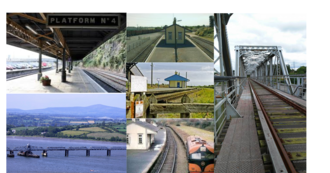.png)
